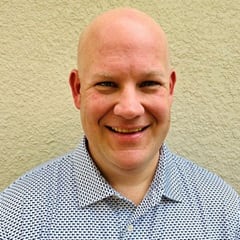What is Healthcare Administration?

Understanding the numbers
When reviewing job growth and salary information, it’s important to remember that actual numbers can vary due to many different factors—like years of experience in the role, industry of employment, geographic location, worker skill and economic conditions. Cited projections are based on Bureau of Labor Statistics data, not on SNHU graduate outcomes, and do not guarantee actual salary or job growth.
Healthcare administration refers to the responsibilities held by departments and personnel in health and medical settings. Professionals in this field — often known as healthcare administrators — can be involved in a range of functions, including operations, financial management, policy development, strategic planning and more.
As the U.S. population ages and the need for healthcare continues to grow, the demand for healthcare administrators is also increasing.* The U.S. Bureau of Labor Statistics (BLS) projects healthcare employment will grow much faster than the average for all occupations from 2023 to 2033 — predicting about 1.9 million job openings annually across the country.*
Because of the increasing demands on healthcare facilities, employment for medical and health services managers, also known as healthcare administrators, could see 29% growth through 2033, BLS reports.*
Healthcare administration roles can pay robust salaries, too.* The median annual salary for medical and health services managers was $117,960 in 2024, according to BLS.*
What Does a Healthcare Administrator Do?
Healthcare administrators monitor the effectiveness of their organizations and make recommendations for operational improvements.
The duties of healthcare administrators vary, depending upon your role, skill set and the type of organization you serve. For example, managers may oversee clinical and non-clinical staff functions within their department or an entire organization, or they could work with patients directly.
Healthcare administrators can expect to complete one or more of the following tasks in their roles, according to BLS:
- Analyze and manage organizational or department finances
- Assure regulatory compliance
- Facilitate meetings with investors and other legislative groups
- Manage facilities operations
- Recruit, hire and train new staff
"The purpose of fulfilling the role of these positions is to provide quality care safely while ensuring the financial viability of the organization," said Dr. Urmala Roopnarinesingh, a clinical faculty member in the healthcare administration program at Southern New Hampshire University (SNHU).
No matter what healthcare administration role you ultimately choose, it’s important to have the right skills, education and training.
What Are the Skills Needed for a Healthcare Administrator?
Successful healthcare administrators should possess a combination of both hard and soft skills.

According to Roopnarinesingh, who is a member of the American College of Healthcare Executives and the Medical Group Management Association, this includes the business skills needed to make efficient and effective decisions, as well as good problem-solving and people skills. For example, in your leadership role, you should be able to manage multiple projects at once and have the communication, analytical and technological skills you need to lead teams, departments or organizations.
"It is critical to learn how clinics and hospitals operate," said Ryan Haywood, an adjunct faculty member and team lead at SNHU. "Learning the financial aspects will be critical to helping you understand how to make strong, supported decisions."
While you can obtain these skills through on-the-job experience in the healthcare field, a degree in healthcare administration helps prepare you to lead in both clinical and non-clinical settings. Most managerial and leadership positions require at least a bachelor’s degree, said Dr. Meredith O’Hara, an associate dean of health professions at SNHU.
“The courses in our online Bachelor of Science (BS) in Healthcare Administration program teach students to learn how to manage staff and processes within various units, floors, departments or an entire facility within a healthcare setting,” said O’Hara.
She said coursework also explores data and trends related to:
- Healthcare economics and reimbursement
- Healthcare information systems
- Healthcare quality and health disparities
- Regulatory compliance
Is a Healthcare Administration Degree Worth It?

Even if you already have years of nursing experience or have worked in a healthcare setting, a healthcare administration degree can help you learn how to apply evidence-based knowledge toward organizational decision-making, O’Hara said.
“If you already have a nursing degree, a healthcare administration degree can help you transition into a management role,” she said. “Having that clinical background knowledge can give you a better understanding of the patient experience and insights into the ways you might improve functionality and operations in a healthcare facility.”
You can choose to pursue healthcare administration degrees at the bachelor’s and master’s degree levels. It's important to look for programs aligned to the Association of University Programs in Health Administration (AUPHA) that address the four competencies that have been deemed critical to a healthcare administrator’s success, O’Hara said. These include:
- Communication
- Computational skills
- Critical thinking
- Societal and cultural context
Whether you earn a bachelor’s or master’s degree, you can greatly benefit from degree programs that provide real-world learning opportunities.
![]()
At SNHU, for instance, both graduate and undergraduate students participate in experiential learning challenges that help them connect theory to practice. These Higher Education and Real-world Training (HEaRT) Challenges ask students to address critical problems facing healthcare facilities across the country and give them the opportunity to present their ideas and recommendations directly to industry experts, O’Hara said.
O'Hara also co-created the Health Professions Creating Awareness and Real-world Engagement Series (HP CARES) at SNHU, which allows students to hear from experienced professionals who offer their perspectives on a variety of healthcare and public health topics.
It can take up to four years to complete a bachelor’s degree in healthcare administration and about two years to complete your master’s degree, depending on your prior educational and professional experience. If you’re looking to work on your degree part-time, it might take longer.
If you have transfer credits, you may be able to finish your degree faster. Choosing an online healthcare administration program that offers shorter, more frequent academic terms can also help you compress the amount of time it takes to complete your degree and provide you with greater flexibility.
Find Your Program
Bachelor’s Degree in Healthcare Administration
Undergraduate healthcare administration programs include courses that focus on data-based decision-making, operational strategies and stakeholder communications. These could consist of courses in healthcare economics, finance and healthcare delivery services, to name a few. Some programs also allow you to specialize in an area of healthcare administration.
At SNHU, for example, the bachelor’s in healthcare administration program allows you to pursue one of two tracks:
- Health information management: Learn more about computerized diagnostic and treatment equipment and technologies impacting billing and reimbursement. You also learn about health insurance policies, record management systems and reimbursement. This concentration prepares graduates for roles such as front-line supervisor, business intelligence analyst or administration services managers, O’Hara said.
- Patient safety and quality: Look deeper into management practices that focus on the patient experience. You can learn how to mitigate risk through identification and analysis, data management, cultural change and patient advocacy. This concentration can prepare graduates for roles such as compliance director, patient safety representative, patient safety manager and quality and patient safety specialist, O’Hara said.

Master’s Degree in Healthcare Administration
A master’s degree in healthcare administration (MHA) builds upon concepts taught in your undergraduate program and digs deeper into topics that help you effectively lead in higher-level management positions. It’s a good degree option for those with previous healthcare experience who are on the leadership trajectory or managers looking to enter the healthcare field, O’Hara said.

With more than two decades of professional healthcare experience in the areas of administration, finance and healthcare operations in outpatient clinics and hospitals, Haywood agrees that the MHA is a great choice for aspiring leaders in healthcare administration.
"When I started my MBA program in 1999, there was one MHA program in my area — now MHA programs are everywhere," he said. "If you want to go into healthcare administration, I absolutely recommend an MHA as your focus."
The MHA provides students with a breadth of knowledge in critical assets of healthcare, including reimbursement, quality improvement, strategic planning and marketing for nonprofits. For example, some organizations often look for hospital CEO or CFO candidates who’ve earned master’s degrees. Depending on your career goals, you may opt to earn an MBA with a concentration in Healthcare Management or a master's in management with a concentration in healthcare.

What Can You Do With a Healthcare Administration Degree?
A healthcare administration degree can open the door to a wide range of career paths. With more experience and education, you may be able to move from specialist roles to managerial roles.
Here are some common jobs a healthcare administration degree might prepare you for. Some may require additional certifications and licensure.
- Clinical managers oversee a specific department or practice and are responsible for management and operations related to that specialty. They establish policies, goals and procedures for their departments, evaluate employees and create reports and budgets, according to BLS. This job typically requires you to have a bachelor's degree, BLS said.
- Healthcare consultants work with senior leadership to conduct research, identify challenges and help design solutions. They may help organizations with insurance compliance, healthcare quality and staff retention.
- Health information managers maintain the privacy and security of patient information and healthcare data related to their organization. They follow healthcare information and privacy laws and safeguard facility databases.
- Hospital administrators oversee the overall operations of a hospital, clinic, treatment center or other healthcare organization. They hold one of the top leadership positions in their organization and may have the title of chief executive officer or chief operations officer. Hospital administrators work closely with medical and support staff to ensure safety, compliance and efficiency. They may also evaluate providers, enact policies, ensure quality assurance and participate in fundraising and community health planning, according to The Princeton Review.
- Human resources managers recruit and train new employees and may also oversee staff pay and benefits. These managers often address conflicts between staff and help identify management solutions. A bachelor's degree in healthcare administration can prepare you for this role, BLS reports. In 2024, human resources managers in the healthcare and social assistance sectors earned a median annual salary of $120,010, according to BLS.*
- Medical billing managers manage contracts with insurance providers, insurance claims, and patient billing for healthcare organizations. They oversee staff in their departments and track payments.
- Medical office managers oversee a healthcare organization's day-to-day administrative tasks, including expenses and accounts, staff scheduling and file management.
- Nursing home administrators manage resident admissions in a nursing home, overseeing finances, organizational effectiveness and regulatory compliance. Nursing home administrators may hold master's degrees, according to BLS. All states require nursing home administrators to be licensed; licensing requirements vary by state, BLS said.
- Practice administrators oversee general operations at a medical practice, such as a primary care practice. They are responsible for managing a variety of administrative activities, including recruiting, contract negotiations and budgeting.
What is the Career Path for Healthcare Administration?
It's different for everyone. A degree in healthcare administration can prepare you for a wide range of management roles that support patients, healthcare providers and staff. You can opt to work with patients directly, focus on financials or improve operational processes. Some positions may require additional educational requirements or accreditation.

Luis Zayas '25 earned his bachelor's in healthcare administration from SNHU while working as a pharmacy technician in both retail and hospital settings. "This just gives me an opportunity to continue that professional career ... and immerse myself into bigger opportunities," he said of earning his degree.
Thanks to his employer, who paid his tuition, Zayas was able to lean into his growth mentality. "I just want to continue growing and just expanding myself with knowledge and experience," he said.
He chose SNHU to earn his healthcare degree because the university "just clicked," he said — and he advised anyone interested in earning their degree at SNHU to take advantage of all the resources that are provided and to ask questions.

Another SNHU grad, Joanna Bradley '17 '20G '22G, said her undergraduate and graduate degrees helped position her for an educational program manager role at a Missouri children's hospital. In this role, she identified gaps in educational offerings for staff and built systems and processes to close those gaps. She also served on various workgroups and hospital committees that examined issues impacting employees, including diversity, equity and inclusion.
“When it comes to education in the healthcare setting, there are a lot of regulatory requirements,” Bradley said. “My master’s degree in healthcare administration provided me with regulatory compliance knowledge and with leadership knowledge that’s helped me lead large-scale projects and people. It’s a very well-rounded degree.”
Bradley began taking undergraduate classes online at SNHU in 2015 when she was a single mother to a toddler. She juggled full-time work with family responsibilities while completing her coursework in the evenings and on weekends.
“My professors and advisors wanted me to be successful and achieve my goals, she said. “I never felt that level of support at any other college I had attended.”
Discover more about SNHU’s healthcare administration degree: Find out what courses you'll take, skills you’ll learn and how to request information about the program.
*Cited job growth projections may not reflect local and/or short-term economic or job conditions and do not guarantee actual job growth. Actual salaries and/or earning potential may be the result of a combination of factors including, but not limited to: years of experience, industry of employment, geographic location, and worker skill.
Krysten Godfrey Maddocks ’11G is a writer who covers K-12 and higher education topics, including policy and the role of digital technology in education. She spent almost a decade working in various marketing roles at an educational assessment company before launching a strategic marketing company. Maddocks earned a master's degree in marketing from Southern New Hampshire University and a bachelor's degree in English/ journalism from the University of New Hampshire. Connect with her on LinkedIn.
Explore more content like this article

SNHU Joins Sigma, Global Nursing Honor Society

Academic Spotlight: Dr. Ashley Love, Program Director of Public Health Programs

What is Population Health Management?
About Southern New Hampshire University

SNHU is a nonprofit, accredited university with a mission to make high-quality education more accessible and affordable for everyone.
Founded in 1932, and online since 1995, we’ve helped countless students reach their goals with flexible, career-focused programs. Our 300-acre campus in Manchester, NH is home to over 3,000 students, and we serve over 135,000 students online. Visit our about SNHU page to learn more about our mission, accreditations, leadership team, national recognitions and awards.


